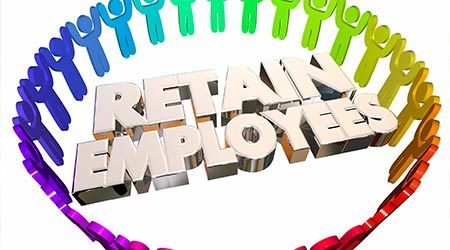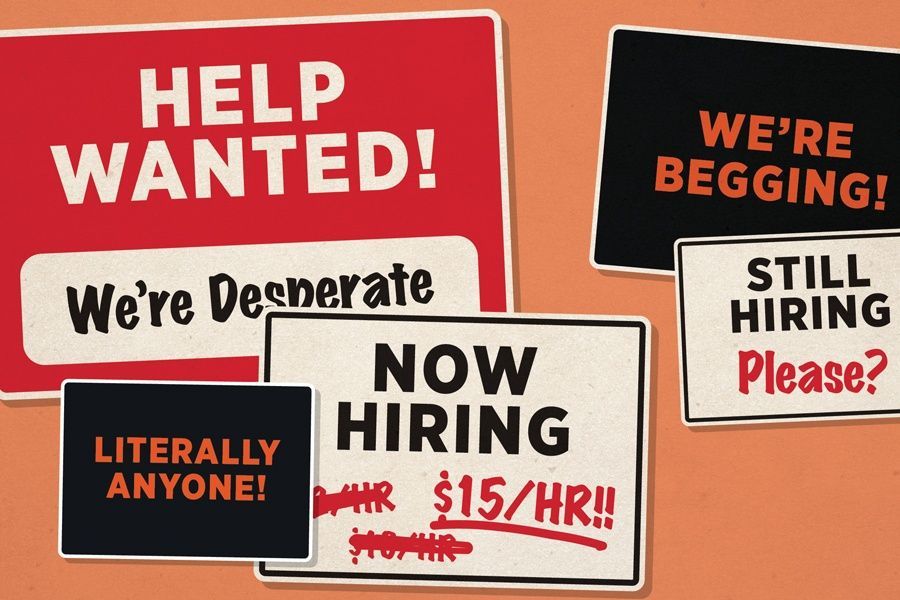
December 2021
Human Service Personnel: It’s Time to Recognize Them
One of our greatest challenges facing us as human service leaders is staff recruitment and retention. It costs less money to retain staff than it does to continuously have to be recruiting and training new staff,
During the past 18 months as Covid took hold on us all, there has been much press (TV, Radio, print etc) recognizing and celebrating our front-line workers – in health care, public transportation, essential providers like grocery stores, law enforcement, senior care staff and schools.
Who has not been recognized and celebrated are human services providers –
- Foster parents and their social workers
- Group home and residential childcare staff
- CPS workers who still met their legal requirements for investigating allegations of child abuse
- Visitation Center staff
- Child Care staff in centers that stayed open
- Workers who still worked to preserve families and prevent child removals
- Counseling/mental health staff who continued to serve our children and families through a variety of vehicles
- Adoptions staff who contributed to do home studies, process adoptions and then work to keep those adoptions intact through challenging time
Our field of child and family services did not stop for the pandemic. We continued to work to protect children and serve them and their families.
With the holiday approaching, every leader in every human service organization needs to ask themselves….
Even though the world did not recognize and celebrate that child and family service providers, did I and do I tell my staff repeatedly that are heroes?
They stayed working and, in many ways, continued to serve their community’s children and their families.
I have heard from a number of agencies planning their Holiday Party/Event for staff.
I know most agencies did not have a holiday party or event last year. The question is, “Is it yet the right time?” I want to suggest we use our resources differently.
I want to offer an alternative – figure out a way to repeatedly honor your staff as “Heroes”
Recognize those that were employed by you before March 2020 and who are still with you as they stayed the course and continued to serve your children and families.
Recognize those who joined your staff since March 2020 as heroes who joined your mission of serving our children and families.
Remember bonuses and pay raises and parties have a very short memory lifespan for employees.
A party may be the wrong message.
When I say recognize, I recommend a threefold approach:
First, a note from each employee’s supervisor thanking them for their service during the past year and the pandemic. Not a generic note to all but a personal note to each. It is taking the time to write a personal note to each that shows you value them and their commitment.
Can the text be the same? Yes, but it’s the fact that they got a personal note just to them that shows they are valued.
Follow that with a note from the supervisors’ Supervisor/Director.
Then a note from the CEO/President.
Lastly, just before the Christmas holiday the CEO/President should send out an all staff thanking all staff for their efforts throughout 2021 and the challenges we faced dealing with the impact of Covid.
So over the weeks in December, they get recognized 4 times.
Repeated recognition from multiple levels of supervisors is more likely to have a positive impact than a one-shot blast from one person to everyone.
Is a series of notes enough?
Parties and alcohol and buffets/dinners are not appropriate as we are still dealing with the tragedy of Covid.
You also can give a token that anchors the recognition – for example – a coffee mug or a water bottle with the agency name on one side and “Hero for Children” or a similar recognition statement can be powerful over time. The company name and statement shows employees that you were thoughtful and planful not last minute.
Use this holiday season as a time to repeatedly recognize your staff who have continued to serve your clients, children and their families, and make this a gift of gratitude and appreciation.
=============================================================
Over the past few months, I have been repeatedly asked if I am offering Supervision for Success – a proven program for increasing employee retention.
Starting in 2022 I will again offer the 3-day onsite course.
In addition, I have developed and now offer a 10 session Zoom course to train supervisors to be Success Coaches. Included with this newsletter is the syllabus for this course.
=============================================================
LEADING FROM OUTSIDE THE BOX
is a monthly newsletter for human services leaders. Its purpose is to challenge your thinking and help you improve organizational and outcome performance. To receive your copy free, simply email Jeff Bormaster at
[email protected] and ask to be added to the mailing list. Feel free to share these newsletters with other human services leaders, simply include the contact information.
LEADING FROM OUTSIDE THE BOX is a monthly newsletter for human services leaders.
Its purpose is to challenge your thinking and help you improve organizational and outcome performance.
To receive your copy free, simply email Jeff Bormaster and ask to be added to the mailing list. Feel free to share these newsletters with other human services leaders, simply include the contact information.
You can read previous issues of Leading Outside the Box at www.jeffbormasterconsulting.com/topics










